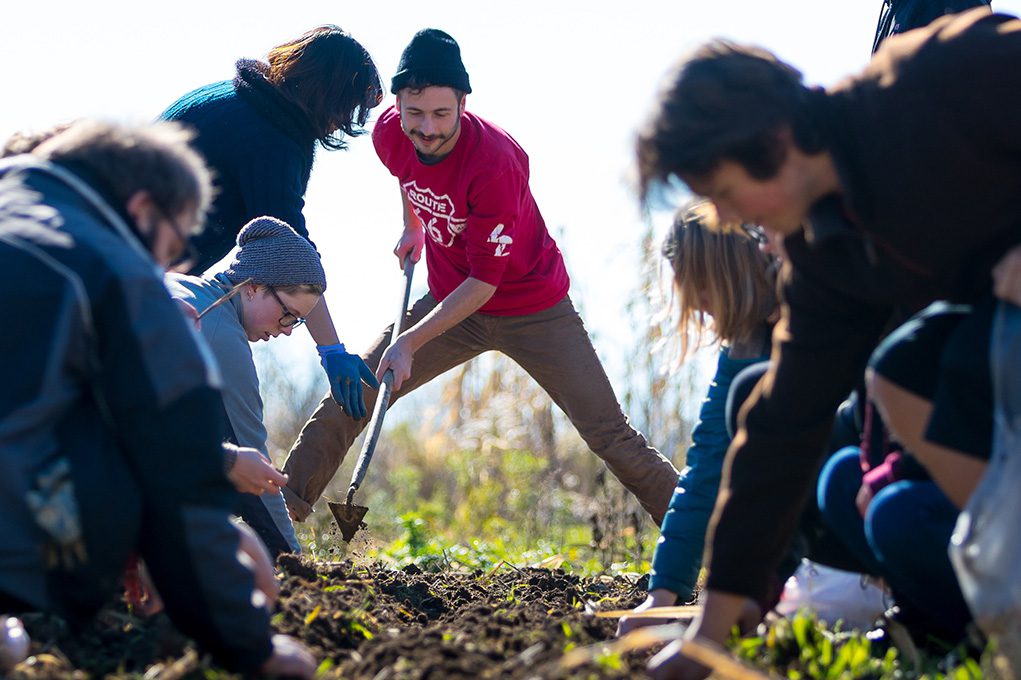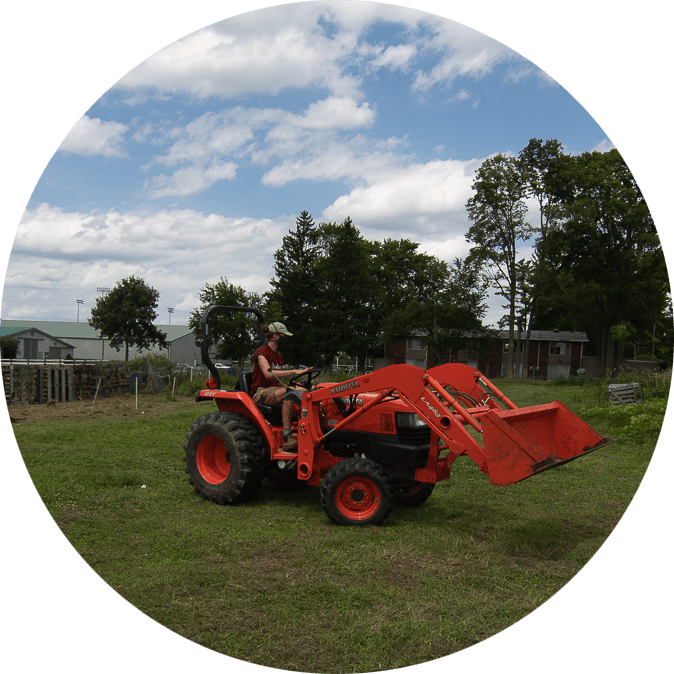Sustainable Agriculture Applied Minor (AM)
Through the applied minor in sustainable agriculture, you will engage in different elements of food and agricultural systems, ranging from the soil to plants to production processes and the global economy.

Start your adventure
Sign up for more information about Earlham College.
Frequently asked questions
The flexibility of the sustainable agriculture applied minor means that you can pursue the facets of food and agricultural systems that are of most interest to you.
Applied minors (AMs) are distinctive programs allowing you to personalize your education and to help you make direct connections between academic interests and co-curricular activities.
Have questions?
Learn more about declaring your interest in an applied minor and find answers to other questions you may not even know you have.
